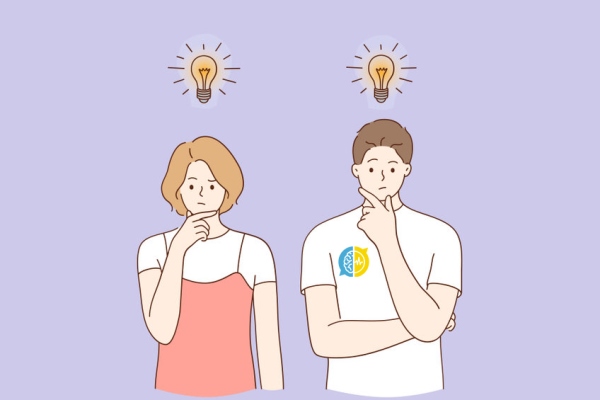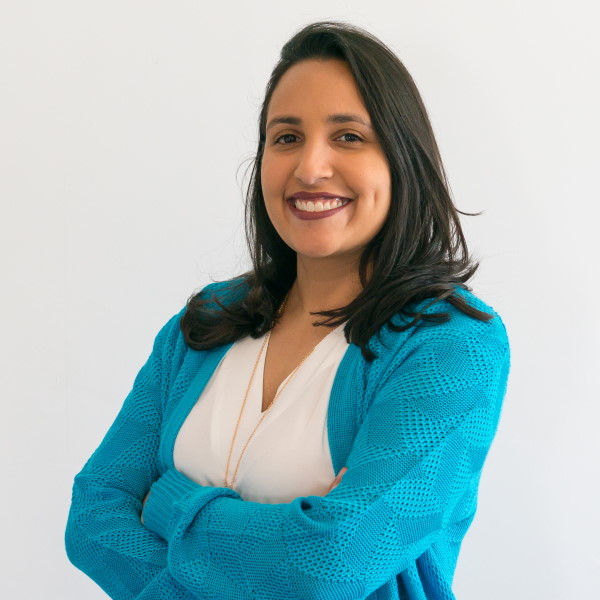
Psychology translations (II). Paths to specialization—Qualified psychology translators
In my previous post in this miniseries, I made my case for psychology as a science and highlighted the distinction between it and common sense, pop psychology, or the wellness industry (although overlaps exist). I also argued that as a specialized field in translation, it requires specialized translators for the more complex subfields and content.
In this post, I share my thoughts about what I think makes a specialized psychology translator and showcase some examples of translators working in this field.
Which came first?

In the translation industry, there's an old kind of chicken-and-egg question: Who is a better translator? The one with a specific professional background or the one with a language background?
Psychology or language background?
As translators, we know this discussion is as old as time, but for someone not familiar with the industry, they've probably never thought about it. So, who can provide a better translation? A psychologist who translates or a translator who is knowledgeable about psychology? The discussion is almost identical to the one happening in medical translation.
When talking about translation, these are the six competencies included in the ISO 17100 standard for translation professionals:
- Translating competence
- Linguistic and textual competence (source and target language)
- Competence in research, information acquisition, and processing
- Cultural competence
- Technical competence
- Domain competence
This standard also states that, as a translator, you can have a higher education degree in translation or make up for it with experience. That's why I prefer not to think in terms of the starting point (specific degrees), but focus on the competencies picked up along the individual journey of the translator.
A psychologist will probably understand and handle terminology better, but will not necessarily be able to generate a linguistically correct text or have the experience/education to use translation strategies successfully. Also, it's likely a psychologist isn't familiar with the requirements, tools, and processes used routinely in the translation industry.
On the other hand, a translator will be able to deliver a linguistically impeccable and well-adapted text, but will struggle more with making the correct terminology decisions. Especially if the text is targeted at professionals, they might need to consult with someone to make sure the text reads naturally for that target.
As we can see, both paths have pros and cons, and there's nothing easy in either one. Both the psychologist-translator and the translator specializing in psychology need to keep studying and strive to make up for their individual shortcomings as translators.
Different journeys—Inspiration from other translators

So what makes a qualified psychology translator? Below are the stories of three translators (including me) who work routinely with psychology translations from different perspectives and who got there through their unique experiences.
Bruna Carvalho: Bruna translates from English to Brazilian Portuguese and vice versa. She has a bachelor's degree in psychology and is studying for a (post-)graduate degree in translation. She talks about her area of work:
I mostly translate scientific papers […] I actually work with all mental health areas—psychology, psychiatry, neuroscience, etc. I feel like just psychology itself has such a wide scope of content—all the different theories and perspectives! […] As a psychologist, I would focus on one perspective (of course, with general knowledge of the others), but as a translator, I have to know a lot about all of them and more. Of course, learning and researching is great fun for me—otherwise, I don't think I could be a translator.
Allison Neill-Rabaux: Next, we have Allison. She translates from French/Spanish to English and also works as a copyeditor and proofreader. She has a master's degree in applied languages and business (with a translation specialism), an MPhil equivalent in social sciences, and a PhD in Enlightenment history. This is her story in her own words:
My journey with psychology happened in quite an unconventional way. I worked in business analysis and market research for a number of years so already had a decent knowledge of statistical testing. My main “teacher” has been personal experience, as a foster and then adoptive parent to a child who also has autism spectrum disorder. I've been attending training and conferences and have been reading extensively about ASD, FASD, early trauma, and attachment for the last 10+ years. When I went into full-time translation, a colleague started sending me work about intellectual and developmental disabilities, adverse childhood experiences, attachment… The rest is history! I feel most comfortable working with research articles about assessment instruments (testing validity & reliability). I avoid anything that is “too medical”.
Karol Tapia de Moya: And finally, me! I translate from English to Spanish. I have a bachelor's and (post-)graduate studies in neuropsychology, disability and healthcare psychology. I also have a translation diploma and have undertaken a range of specialist translation courses. So how did I get here?
I moved from Colombia to Spain, but before I could work as a psychologist here, I had a long bureaucratic journey ahead of me. In the meantime, I had to sit and think about what to do. I had some experience translating for fun, but in my country, this is not a common degree, and it definitely wasn't a “mainstream” career option. Gradually I found some clients, gained experience and got a translation diploma. For years, I balanced my translation and psychology work, but a few years ago, I decided I wanted to give it a shot and combine my two passions: psychology and translation. And here I am! Since my experience was in clinical neuropsychology and education, I mainly translate medical/healthcare and psychology translations, including assessments, clinical research documentation, and medical devices. I also offer other services like linguistic validation and app/website content localization.
The importance of specializing

There are several key aspects that are worth highlighting in these stories:
- CPD is essential: Whether they started as psychologists or as translators, they've kept studying, researching, and being up to date.
- Know their limits: They just don't state they can translate everything blindly. They understand the vast field that is psychology and stick to what they prefer. Professional translators are supposed to be aware of their limitations and decide whether they have the required level of specialization to successfully translate a text. For example, Allison feels more comfortable in the social science side of psychology and I feel more comfortable in the healthcare side.
- Knowledge is not only found in books: They leverage their personal experience and interests and use them as resources. Not only professional and formal education counts.
Conclusion
As I mentioned in my last post, psychology is a specialized translation field and translators need to be qualified. This doesn't mean there's an obligatory path that will take people there, just as any specialization field in translation.
But not anything goes, as the translation industry has standards not only regarding the translation per se, but also the translator qualifications. Nonetheless, there are some key common elements that can help identify a qualified psychology translator, like continuing education and specific experience in this field, as well as personal experiences and interests that can open the way to a professional specialization.
In the next (and last) post of this series, I'll share some resources for psychology translation. Be sure to check it out if you're a translator looking to learn more about this field.
This is part of the Psychology Translation miniseries:
- Psychology translations (I). Psychology translation as a specialism
- Psychology translations (II). Paths to specialization: Qualified psychology translators YOU'RE HERE!
- Psychology translations (III). How to specialize through self-learning

is a psychologist and English to Spanish translator. She specializes in the fields of psychology, healthcare and medicine, and education. In this blog, she writes about everything she knows or has learned that could be useful or of interest to you!